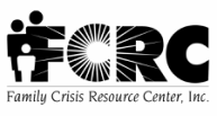|
February is Teen Dating Violence Awareness Month (TDVAM). Violence among teenagers is not often discussed but is more common than most would think. Dating violence can consist of physical violence, emotional violence, psychological violence and manipulation, sexual violence and rape, and stalking. In fact, over 40 percent of young women in college experience a form of dating violence, and one-third of teenagers will experience violence in a dating relationship (loveisrespect, 2021).
Teen dating violence can be prevented, especially when there is a focus on reducing risk factors and replacing them with protective factors. Teens can be empowered through family, friends, and others (including mentors, teachers, etc) to lead healthy lives and engage in healthy relationships. During the teen years, it is critical for youth to beginning learning the skills needed to maintain healthy relationships - like learning how to manage feelings and communicate in a healthy way. FCRC’s prevention team joins Allegany County Public Schools in effort to end violence before it begins. Krystal Rowan, LGPC noted the high influence of technology in teen dating violence. Teens use smart devices to harass and terrify their dating partners. A recent student by the Urban Institute Project reported 25 percent of dating teens have been victimized by their partners through technology. Joe Clark, Prevention Coordinator, recognizes the negative impact when early intervention for teens does not occur. Un-addressed violence in adolescent relationships often lead to future problems with intimate partner violence, sexual violence, and/or victimization throughout life. The theme recognizing TDVAM for 2021 is “Know Your Worth!” Please join FCRC staff and advocates nationwide as we raise our voices in an effort to end violence in teen dating relationships. Wear orange the week of February 9th to show support! Remember- everyone is deserving of a loving relationship! For more information check out the resources below! https://www.loveisrespect.org/get-involved/tdvam/ https://youth.gov/feature-article/teen-dating-violence-awareness-and-prevention-month https://www.teendvmonth.org/
5 Comments
We are quickly approaching the winter months – which leads us to the “most wonderful time of the year”….but is it? The holidays can be a rather stressful time for most. The high expectations, the added financial burdens, and this year – top it off with a dash of global pandemic. The holiday season presents unique challenges for survivors. While the holiday season may play host to fun events, gatherings, and family time, survivors can find themselves in tough situations searching to find a balance between an ideal family celebration and possibly leaking a deep secret. While the holidays can hold different obstacles for victims, it may be a time that friends and family have the opportunity to intervene. Possible warning signs may be subtle, like a change in a once outgoing personality or you may even observe first hand controlling actions of an abuser. If you do see something troubling, it is suggested to approach the victim when they have a moment alone and out of earshot of the possible abuser. Offer support – not judgement – even if they have returned to the abusive relationship. It’s important to remember leaving is a process and make take several tries. But each time – they are getting a little stronger. With your help – it may be just enough this time. To read about managing holiday stress, check out: https://www.verywellmind.com/understanding-and-managing-holiday-stress-3145230 For more information about supporting a friend for loved one, check out: https://www.mnadv.org/get-help/how-to-help/ To learn about the possible warning signs of IPV, check out: https://ncadv.org/signs-of-abuse |
Archives
February 2021
Categories |



 RSS Feed
RSS Feed
